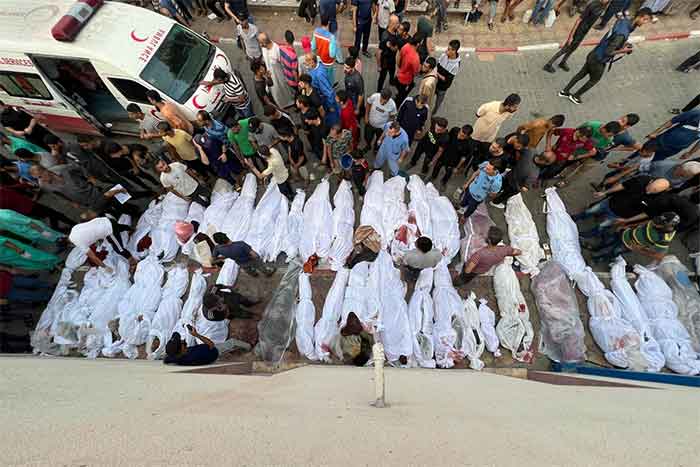Co-Written by Akhter Hussain Bhat & Dr. Mohammad Akram

The novel COVID-19 has caused widespread concern, fear, anxiety and stress among millions of people worldwide. The virus has affected more than 5 million people causing more than 3.3 lakh deaths while many are battling for recovery around the globe. Owing to the stern and infectious nature of the virus, the World Health Organization in March, 2020 declared the virus as a pandemic in order to emphasize the gravity of the situation and urge all countries to take action in detecting infection and preventing spread.
As the medical fraternity around the world is still to find a proper cure for the treatment of the virus, the primary interventions that the countries have adopted are social distancing, isolation, hand and respiratory hygiene and complete lockdown. This in turn has posed bigger challenges through all areas of daily life. All economic, political and social activities have come to a halt. The delivery of medical care for people suffering from various ailments has become a challenge for health professionals world over. The coronavirus has forced sudden and dramatic changes throughout the medical world. Annual checkups, routine surgeries and even normal services have been cut back or canceled to minimize exposure to the virus.
As we see the virus is affecting people worldwide and hardly there can be any part unaffected. India is no exception which is experiencing thousands of people getting affected on daily basis. As of May 24, India is reported to have 1, 31, 868 people affected from the virus and 3,867 have been killed by it. Many categories of people around the country are susceptible to the pandemic in different ways. One such group of people is of cancer patients who are more prone to the infection from the virus than any other. According to a recent study titled ‘Cancer Care Delivery Challenges Amidst Coronavirus Outbreak’ published in Asian Pacific Journal of Cancer Prevention, cancer patients are more susceptible to coronavirus and subjected to severe complications than individuals without cancer as they are in an immunosuppressive state because of the malignancy and anticancer treatments.
In India, cancer is witnessing an alarming increase. According to a parliamentary standing committee report on Science, Technology and Environment published in The Hindu last November, the incidence of cancer in India is about 16 lakh annually. Nearly 8 lakh people die of the disease annually. Among these are 140,000 cases of breast cancer, 100,000 cases of cervical cancer, and 45,000 of oral cancer among India women. Among men, the top three cancers with the highest incidence are of oral cavity (1, 38,000 cases), cancer of the pharynx (90,000) and of the gastro-intestinal tract (2, 00,000). Further, the systematic failure to address the needs of cancer patients contributes to 20 per cent higher mortality among Indian cancer patients says the report. The International Agency for Research on Cancer (2018) expects India’s cancer burden to increase from the estimated incidence of 13 lakh cases in 2018 to about 17 lakh in 2035, and cancer deaths from 8.8 lakh to 13 lakh during the same period. Given these facts and the highly inadequate cancer care facilities aided by the complete lockdown due to the pandemic, the patients suffering from cancer are at a higher risk and the foremost risk is inability to receive essential services including cancer specific treatment. Cancer patients need to visit the hospital five or six days every week and are advised not to skip the treatment. However, due to public transport off the roads and the governments’ advisory of maintaining physical distance these patients cannot travel from one place to another. Additionally, hospitals that offer cancer specific treatments are mostly located in urban areas and hence pose an additional burden to patients from remote areas. About 95 per cent of the cancer care services are restricted to the urban areas and hence the 70 per cent of the people living in rural areas can’t afford these services. So there is a lot of disparity in cancer care in India says Dr Abhishek a Delhi based oncologist.
As India is focused largely on responding to the threat from Covid-19, it has been forced to turn a blind eye to deaths from other preventable causes as a result of highly restricted access to healthcare during the lockdown. The supply of essential drugs has been badly hit as has been the attendance and workforce participation of hospital personnel. Many hospitals have limited the patient flow for treatment which has resulted in some avoidable incidents to occur. One such incident as reported in India Today can be cited of a two-year-old child suffering from stomach cancer in West Bengal who died because of the non-availability of timely treatment. The child’s family is reported to have said that they visited four hospitals in Kolkata but could not get the treatment. “Everywhere we went, we were turned away,” the father who is a cycle van driver by occupation is reported to have said. The toddler had undergone a surgery in her stomach last December at state-run Calcutta Medical College (CMC) hospital. Amidst the lockdown, her condition deteriorated and accordingly the family took her to several hospitals but to no avail. Unable to get any treatment in at least four hospitals- the Barasat District hospital, Netaji Subhash Chandra Bose Specialized Hospital and Research Centre, RG Kar Medical College and Barasat Cancer Research Centre- the child died on her way back to Barasat District hospital the family is reported to have said.
The pandemic is posing major challenges on the psychological wellbeing of cancer patients. The physical distancing requirement could render cancer patients to feel lonelier than they already do and this in turn could result in poor prognosis and survival rates. For cancer patients, stress is more disturbing than the cancer itself says Dr Shankar. He further says that in this situation, it is very difficult to manage these people as they are unable to come to the hospital. The cancer specialist remarked that it is a dilemma for healthcare professionals as well as patients because there is an issue regarding what to follow and what not to. For a cancer patient, nothing, not even the danger of contracting COVID-19, is more worrisome than that of compromising his/her cancer care. Considering the high risk of contracting COVID-19, many patients with weak immune systems have discontinued their treatment in an attempt to improve their chances of fighting off a COVID-19 infection.
There is no denying the fact that the coronavirus pandemic has presented India like every other country with a crisis, but a crisis is no excuse to focus all of one’s efforts on one disease at the expense of others. Considering the serious medical and emotional needs of patients, the government needs to issue scientifically drafted patient centric guidelines about managing cancer patients and handling their care against the backdrop of the COVID-19 outbreak. Health professionals engaged in cancer care also have a responsibility to communicate information about appropriate medical care, practice modifications and treatment regimens to the people under their care.
Akhter Hussain Bhat is a Ph.D. research scholar at department of sociology, Aligarh Muslim University, Aligarh. The author presently works on the Sociology of Cancer and has also presented papers at several national level conferences along with workshop participations. The author can be mailed at: [email protected]
Second author:
Dr. Mohammad Akram is professor of Sociology at department of sociology, Aligarh Muslim University, Aligarh, India. Prof. Akram has five published books and several research papers to his credit. He has specialization in sociology of health, migration, work, education and social policies. He is engaged in the profession of teaching, research and supervision for more than twenty years. He is an elected member of the managing committee of India Sociological Society (ISS). He can be emailed at: [email protected]
SIGN UP FOR COUNTERCURRENTS DAILY NEWS LETTER















































